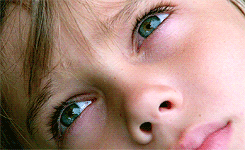Boyhood is a landmark achievement in filmmaking, and it deserves a place in history. Its actors, director, and others who put so much time and effort into it deserve all the accolades in the world. I thought I had a criticism of the film, but really it’s a criticism of what comes next. As brilliant and compelling and wonderful as Boyhood was, I’m wondering about the potential for future films. Obviously the movie resonated with me, but once the credits ended and I’d had time to think about it, I realized that it hadn’t told me anything I didn’t already know.
Mason’s childhood was different from mine in many critical ways, but it was very much alike in many others. We both grew up in Texas, yes, but we also both grew up in the United States, and in a particular version of this country. In additional to nationality, Mason and I share features like race, gender, gender identity, and sexual orientation. I may have had a more affluent upbringing than Mason, but his was still reasonably comfortable.
Again, these are not intended as criticisms. This was an extremely ambitious project, and Linklater had to make the film at least somewhat autobiographical, if only in the sense that this unprecedented type of film took place in a world that was accessible to the filmmaker. I am hopeful that something like this is possible for other settings, be it on the basis of race, geography, or whatever. I don’t know of any projects like that in development, and anything that got greenlit today wouldn’t be in theaters until at least 2027, but I still hold out hope.


![Kelly Martin (Own work) [GFDL (http://www.gnu.org/licenses/fdl.html) or CC BY-SA 3.0 (http://creativecommons.org/licenses/by-sa/3.0/deed.en)], via Wikimedia Commons Kelly Martin (Own work) [GFDL (http://www.gnu.org/licenses/fdl.html) or CC BY-SA 3.0 (http://creativecommons.org/licenses/by-sa/3.0/deed.en)], via Wikimedia Commons](http://crypticphilosopher.com/wp-content/uploads/2015/01/800px-Illinois_Target_Store.jpg)
